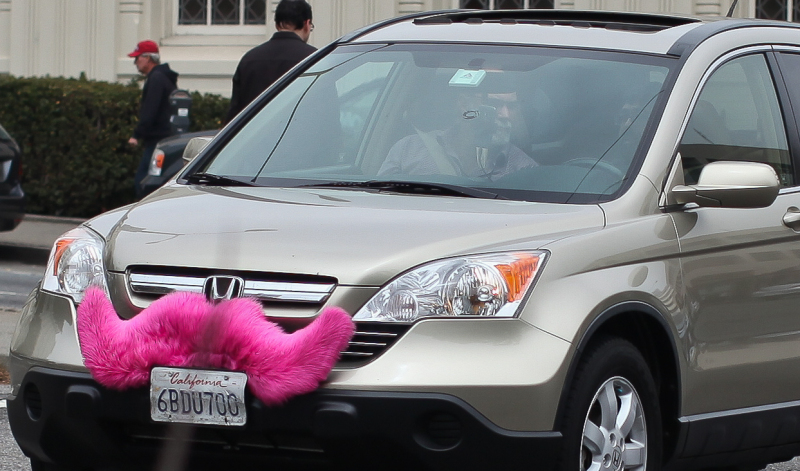The California Department of Motor Vehicles sent out a retraction Friday night of a memo it had issued earlier this month that vehicles even occasionally used for commercial purposes -- like those driven for ride services such as Lyft and UberX -- would need to be registered as commercial vehicles.
That announcement had drawn a flurry of press coverage since it was first reported by BuzzFeed. Switching registration of a personal vehicle to that of a commercial vehicle would add another layer of bureaucracy to signing up for ride-service work and potentially dissuade drivers from joining up. (You can see the necessary DMV form here.)
BuzzFeed even called the requirement an "existential threat" to the ride-service industry, noting: "For drivers to switch their registrations to comply with California law, they would have to pay to make the conversion to commercial status, and shell out for higher annual registration fees. In addition, commercial vehicles generally require commercial insurance, which costs as much as 10 times more than standard personal coverage."
Here's the announcement from the DMV tonight, switching course from its earlier position:
California DMV Director Jean Shiomoto this evening retracted Vehicle Industry News alert VIN 2015-01, which affected ride share operators for companies such as Uber, Lyft and Sidecar and issued the following statement:
“Our responsibility is to notify the public of existing state law. In response to inquiries, the department issued an alert earlier this month that reflected the definition of a commercial vehicle under a 1935 law. However, there remains uncertainty about the interaction and effect of this law governing vehicle registration requirements with the more recent regulatory and statutory changes affecting ride share operators. We jumped the gun, and we shouldn’t have. The matter requires further review and analysis which the department is undertaking immediately.”
In the coming days, the DMV will be meeting with regulators and industry to continue working through this issue. Pending this further review, Vehicle Industry News alert VIN 2015-1, which affected ride share operators, is hereby revoked including any reference to the requirement of a commercial plate.
The California Public Utilities Commission officially sanctioned ride services in 2013, creating a new category of vehicle-for-hire services called transportation network companies, which are now licensed by the CPUC under a set of regulations addressing safety, training, insurance coverage and other requirements.

